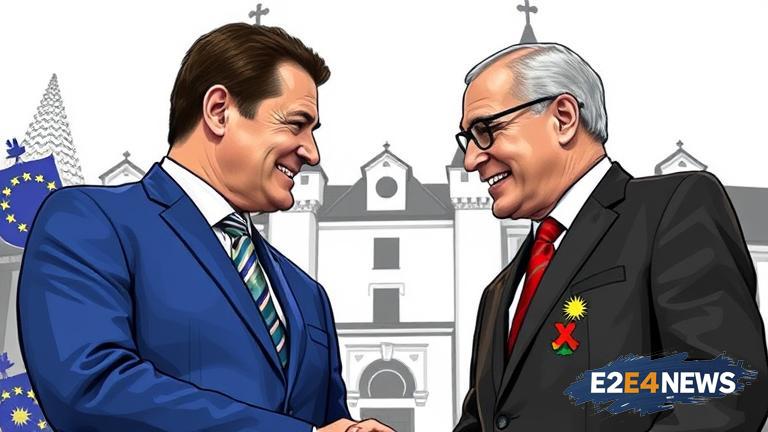A high-level delegation from Luxembourg recently visited Moldova to reaffirm the country’s strong support for Moldova’s bid to join the European Union. The delegation, led by Luxembourg’s Minister of Foreign and European Affairs, emphasized the importance of European integration for the region’s stability and prosperity. During the visit, the delegation met with Moldovan officials, including the President and Prime Minister, to discuss the country’s progress towards EU accession. The Luxembourg delegation praised Moldova’s efforts to implement reforms and meet the EU’s accession criteria, highlighting the country’s significant progress in areas such as justice, anti-corruption, and economic development. The delegation also emphasized the need for continued reform efforts, particularly in areas such as the rule of law, human rights, and good governance. The visit was seen as a significant show of support for Moldova’s EU aspirations, and comes at a time when the country is facing significant challenges, including a ongoing political crisis and economic pressures. The Luxembourg delegation’s visit was also seen as a demonstration of the EU’s commitment to the region, and its desire to see Moldova and other Eastern European countries integrate more closely with the EU. The EU has been a strong supporter of Moldova’s accession bid, and has provided significant financial and technical assistance to help the country meet the accession criteria. Despite the challenges, Moldova remains committed to its EU accession bid, and has made significant progress in recent years. The country has implemented a range of reforms, including the establishment of an anti-corruption agency and the introduction of new laws to promote transparency and accountability. The EU has also launched a number of initiatives to support Moldova’s accession bid, including the establishment of a special task force to help the country meet the accession criteria. The task force, which is led by the European Commission, provides technical assistance and support to help Moldova implement the necessary reforms. The EU has also provided significant financial support to Moldova, including a €100 million macro-financial assistance package to help the country address its economic challenges. The package, which was agreed in 2020, provides funding for a range of initiatives, including economic development, infrastructure, and social welfare programs. In addition to its economic support, the EU has also provided significant technical assistance to Moldova, including the deployment of EU experts to help the country build its institutional capacity. The EU has also launched a number of initiatives to promote people-to-people contacts between Moldova and EU member states, including the establishment of a visa-free travel regime and the launch of a number of cultural and educational exchange programs. Despite the progress made, Moldova still faces significant challenges on its path to EU accession, including the need to address ongoing concerns about corruption, the rule of law, and human rights. The country must also continue to implement reforms and meet the EU’s accession criteria, including the establishment of a functioning market economy and the ability to implement EU laws and policies. The Luxembourg delegation’s visit was seen as a significant show of support for Moldova’s EU aspirations, and demonstrates the EU’s commitment to the region. The visit also highlights the importance of European integration for the region’s stability and prosperity, and the need for continued reform efforts to address the challenges facing Moldova. In conclusion, the Luxembourg delegation’s visit to Moldova was a significant show of support for the country’s EU accession bid, and demonstrates the EU’s commitment to the region. The visit highlights the importance of European integration for the region’s stability and prosperity, and the need for continued reform efforts to address the challenges facing Moldova. With the support of the EU and its member states, Moldova is well-placed to continue its progress towards EU accession, and to achieve its goal of becoming a member of the EU in the coming years.
